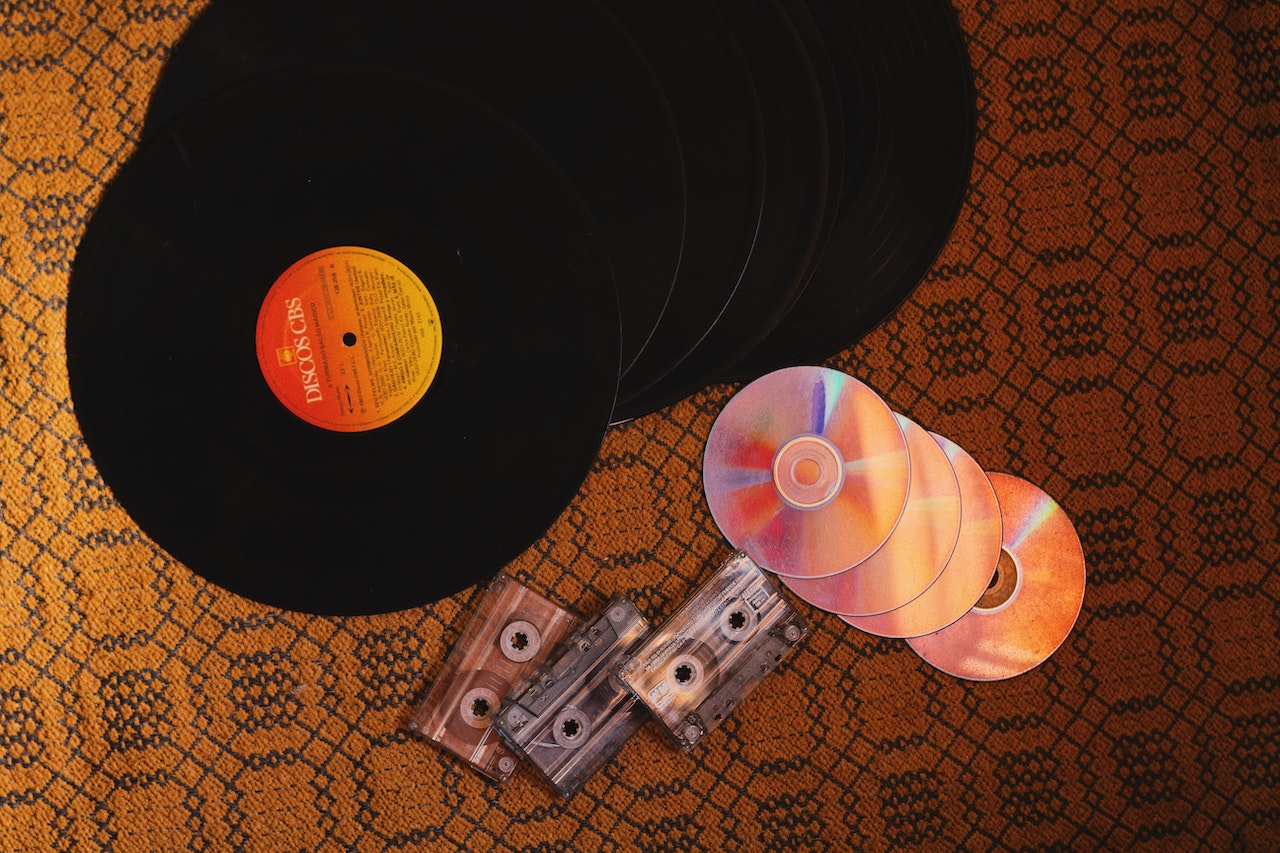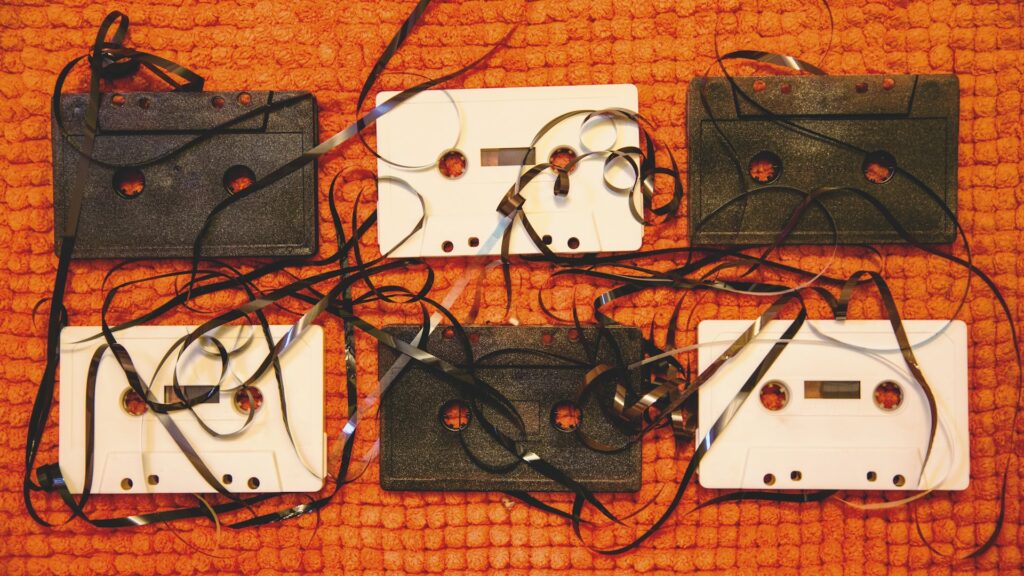Common Causes of Distortion
Distortion is a common challenge that audiophile beginners often encounter, disrupting the pure listening experience they strive for. Disturbances can occur throughout the audio system, from the source (such as turntables) to the moment the sound reaches the listener’s ears. Pinpointing the source and understanding how distortions impact the overall audio quality can be challenging, but it’s a crucial step in the pursuit of achieving true high fidelity.

Distortion is a problem that many beginners in the world of high-quality sound face. It can mess up your music experience. Distortion can happen anywhere in your sound system, from where the music starts (like turntables) to when it reaches your ears. Figuring out where it's coming from and how it affects your music quality can be hard, but getting that amazing sound you want is super important.
Listening to music can sometimes be tricky. You might hear scratches or strange changes in the sound that shouldn't be there. This happens to many people who love good sound, especially when they're setting up their home music systems. These unwanted changes can ruin the experience of hearing pure, high-quality music.
Experienced sound lovers know this struggle well. They're familiar with distortion, the main bad guy in the quest for great sound. Distortion can mess up your music at any point in the system, and when we put all those problems together, we call it Total Harmonic Distortion. It's the main villain in the fight for perfect sound. But finding where distortion comes from and how it affects your system and music isn't easy.
At Audio Advisor, we’ve spent over 40 years helping audiophiles know how to decrease distortion levels and how best to identify them and even make sure they disappear almost entirely. That’s what we’ll go over with you in this article. We’ll break down common causes of distortion at every level of the system so that you can identify where disruptions to your peace are coming from.
Before we get into this, ask for another set of ears to listen to your system to double-check. It never hurts to have others listen before tweaking something that may be just right.

Your Choice of Medium
There are various types of music sources, like records, CDs, and cassettes. Each can cause distortion in its own way. Each source of audio medium is unique, but each can cause distortions in its own way. Audio distortion can arise from various points in different playback formats. Here are some common sources of distortion and methods to minimize or remove them:
Vinyl Records
- Surface Noise and Scratches: Vinyl records can be susceptible to surface noise and scratches. Proper handling and cleaning of records, using high-quality cartridges and styli, and maintaining a clean turntable setup can help minimize these issues. Additionally, using a record-cleaning machine is far better since it cleans deep in the grooves and then sucks the debris away.
- Inner-groove Distortion: Inner-groove distortion can occur due to the physical limitations of the vinyl format. Adjusting the turntable’s tracking force, anti-skate, or cartridge alignment can help optimize playback and minimize this type of distortion.
- Dirty Needle: Dust and debris from record grooves can build up on the needle and cause the stylus to skip or jump, resulting in unintended audio interruptions. It’s imperative to keep it clean by cleaning regularly.

CDs
- Reading Problems: CDs can experience reading errors or damage, leading to audio distortion or skipping. Keeping CDs clean and free from scratches or smudges, using a high-quality CD player with error-correction capabilities, and handling CDs carefully can help prevent distortion. If a CD is severely damaged, professional disc repair services may be able to restore it to playable condition.
- Digital Mistakes: In the digital realm, audio distortion in CDs can also result from errors in the encoding or mastering process. These issues are generally not correctable by the end user, but using a high-quality CD player and ensuring the source material is of higher quality can help minimize this impact.
Wireless Sound
- Signal Interference: Wireless audio transmission can be prone to signal interference from other electronic devices, physical obstacles, or crowded radio frequency environments. Keeping things close can help reduce interference.
- Compression Issues: Some wireless audio systems employ lossy compression files to transmit audio wirelessly, introducing distortion. Opting for wireless systems that use higher-quality or lossless compression methods can help minimize that chance.
Preamplifiers/Amplifiers
Sometimes, the amplifiers that power your music loud can get old and dusty, and the internal components – capacitors, resistors, etc. – degrade slowly over time. The preamp is the most critical component, followed by the amp. If your preamp is old, you may want to replace the vacuum tubes or update it with a new one.
Cables
Good cables are essential for great sound. Ensure your audio interconnect cables feature high-quality shielding, material, and top-grade connectors. Speaker cables oxidize over time. If the copper in your cables or at the ends is turning brown. This is oxidation, and you should consider replacing them with new ones
Speakers
Speaker drivers also slowly degrade over time. If your speakers are old, check the surroundings around the drivers for cracks or gaps. If you see any cracks, you can have the driver re-coned by various services around the country. Also, consider replacing older speakers with new ones, as speaker technology has dramatically improved. Even lower-priced speakers offer a magnitude (x1,000) less distortion than most older designs.
Cassettes
- Tape degradation: Over time, the magnetic tape used in cassettes can deteriorate, resulting in loss of fidelity and increased distortion. Using high-quality tapes and properly maintaining them can help minimize this issue. Also regular cleaning can also reduce distortion.

Keep At It
Over time, the magnetic tape used in cassettes can deteriorate, resulting in loss of fidelity and increased distortion. Using high-quality tapes and properly maintaining them can help minimize this issue. Also regular cleaning can also reduce distortion.
